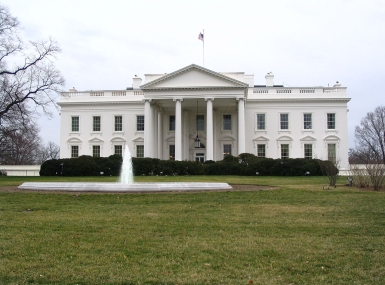County Cyber Defense: Advanced Strategies for Government Executives

Available On-Demand
This webinar is available on-demand. If you have issue accessing the recording, please email nacomeetings@naco.org.
As costs to address cyber threats and time to remediate them continue to increase over time, a strong defensive strategy has become a top priority to mitigate risk and impact. In this webinar, county leaders will hear about the latest, proactive cyber defense strategies from CAI and LMNTRIX and how these strategies were implemented for Palm Beach County Children’s Service Council.
Attendees will gain insights into overcoming challenges like alert fatigue and threats bypassing existing controls, exploring the sliding scale of cybersecurity and architectural considerations, and how to effectively use a Security Operations Center (SOC).
Key Takeaways
- Discover the latest cybersecurity trends including the key challenges in cyber defense
- Explore the sliding scale of cybersecurity and learn how to better evaluate your agency’s security maturity
- Learn innovative active defense strategies and ways to enhance your cyber resilience
- Hear how a county agency is strengthening their defenses by using a Managed Detection and Response (MDR) solution
Speakers

Robert Kurimski

Rex Johnson

Hamlet Khodaverdian
Watch Recording
Upcoming Events

Transforming County Payouts with Real-Time Innovation
Thursday, September 4, 2025 | 2:00 - 3:00 PM Eastern Time
Discover the technological evolution of county disbursements and how digital finance transformation can mitigate risks and enhance operational efficiency. As counties strive to modernize their legacy systems and reduce costs, staying ahead of technology trends is crucial. This session will explore how counties can leverage the latest advancements in real-time disbursements to revolutionize their payout processes. Attendees will gain insights into emerging trends and practical use cases that showcase the journey from outdated payout processes to advanced technology disbursements.

NACo AI Central Regional Forum
The NACo AI Regional Forum series is convening local government elected officials, appointed officers, department heads, and staff across different geographical regions to provide an educational, hands-on symposium on the landscape of artificial intelligence.

Unity in Uncertainty: Thriving Through Turbulence
This training will focus on the current operating environment and emphasize core partnerships to identify opportunities and strengthen infrastructure security and resilience. Comprehensive partnerships and diverse perspectives can solidify and fortify operations during uncertain times.
Featured Resource
County Tech Xchange
The NACo County Tech Xchange is an online portal designed to connect county CIOs, IT Directors, CISOs, and other county IT leadership. This portal provides valuable resources in a central location that counties can use to improve their overall technology infrastructure.

Related News

NACo sends letter to Capitol Hill urging restoration of MS-ISAC funding
NACo sent a letter to congressional appropriations leadership urging federal funding for the Multi State Information Sharing and Analysis Center (MS-ISAC)

DHS announces new round of funding for the State and Local Cybersecurity Grant Program
The U.S. Department of Homeland Security (DHS) announced a new round of funding for the State and Local Cybersecurity Grant Program (SLCGP)
